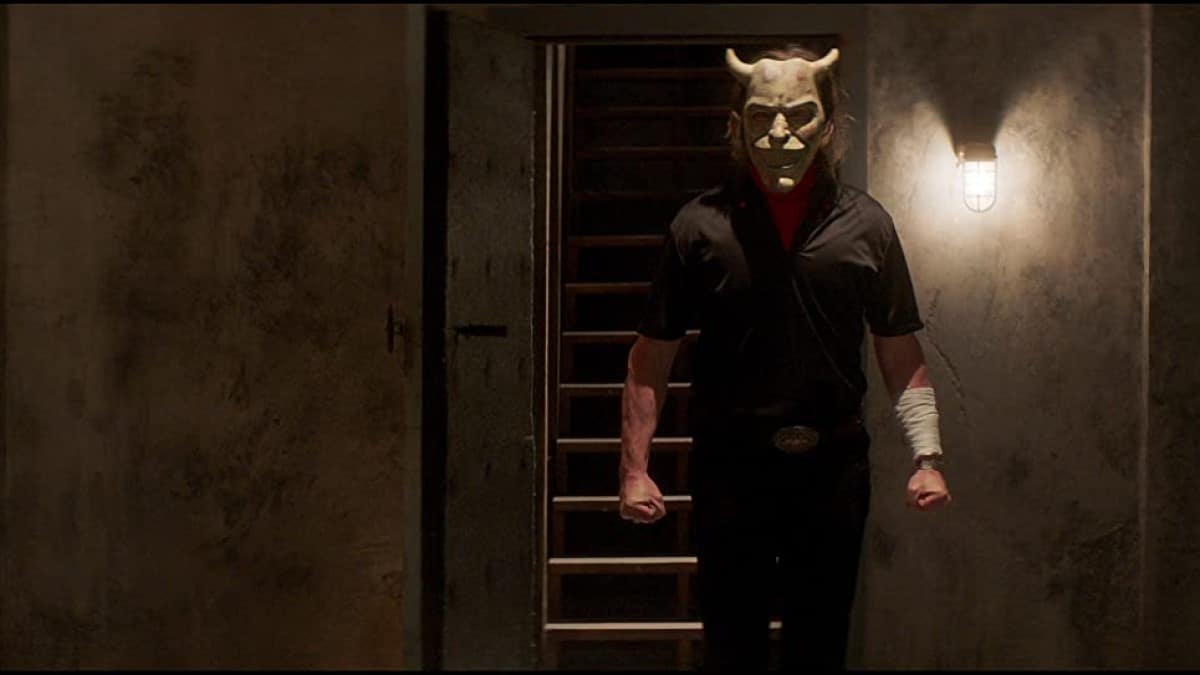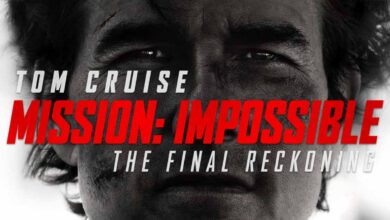Review: The Black Phone
Director Scott Derrickson‘s latest film, ‘the Black Phone’, returns to the Horror genre that he cut his teeth in before his detour to the MCU in Doctor Strange.
Blumhouse Production’s ‘The Black Phone’ takes a back-to-basics approach to the Horror/Suspense genre. Instead of trying to reinvent the wheel, the film executes a highly predictable premise with a fresh and scary energy that will keep you on the edge of your seat, despite knowing EXACTLY what’s coming.
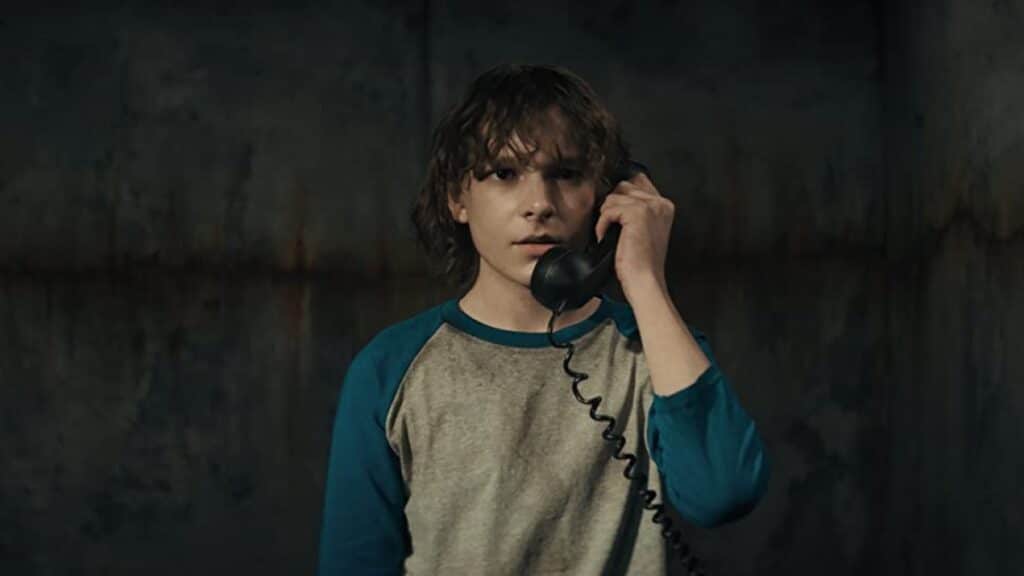
The Plot – The Black Phone
1978, an average American suburb of a Middle American city. Older brother, Finney, and younger sister, Gwen, attend Middle School like any normal teenagers.
Finney, played by Mason Thames, finds success on the Baseball field as a Pitcher, and success in the classroom. Where Finney fails is in the courage department, literally unable to stand up for himself against bullies of all kinds.
Gwen, played by Madeleine McGraw, loves her brother unconditionally. More social than her brother, Gwen dreams vividly. So vividly, in fact, that she sees awful things in her dreams — awful things that might actually be real.
The Black Phone Instant Movie Review
Finney and Gwen’s Dad, Terrance, played by Jeremy Davies, struggles to financially provide and stay sober. He also struggles to control his anger in the face of raising his kids alone.
Teen boys in the neighborhood have gone missing, and everyone is blaming ‘The Grabber’. Ethan Hawke takes a walk on the darkside as The Grabber, pulling off what I think is the creepiest role of his career.
The Grabber hides in plain sight, dressed up as a magician, and driving a black, windowless van. He uses Ted Bundy’s bungling, helpless technique to lure his victims in, then drugs them unconscious.
Finney isn’t the first victim to fall prey to The Grabber, but he hopes he’ll be the last. Locked in a spartan basement, Finney studies his surroundings, looking for anything that can help him escape, and survive.
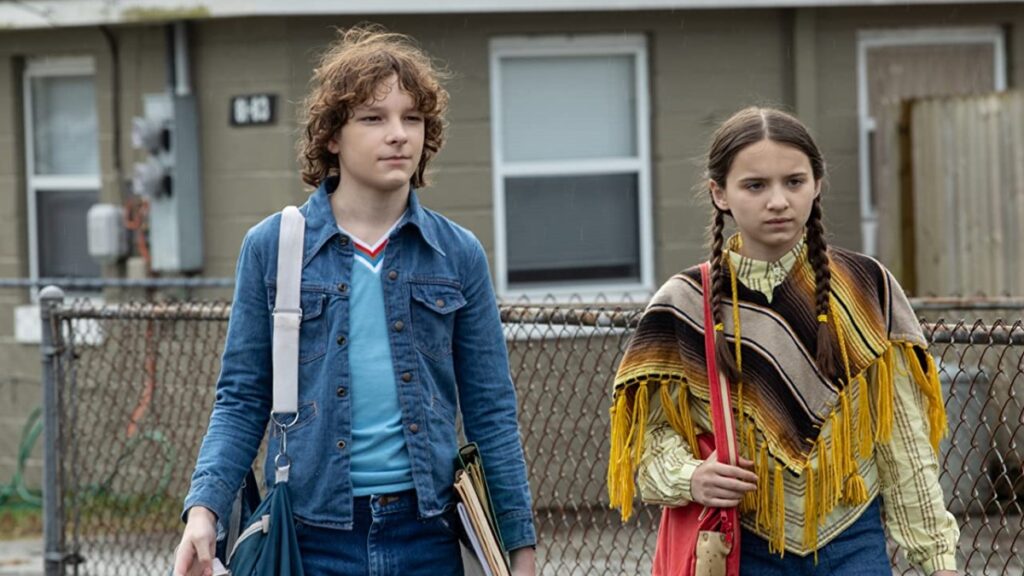
The Good – The Black Phone
The Casting
The success or failure of The Black Phone rides on the shoulders of our two teenage lead actors.
Mason Thames
Mason Thames’ performance as Finney carries the majority of this film. Finney’s character arc from wallflower afraid to stand up for himself at school, to one who must fight for his life versus The Grabber is the center of our story.
We see the story through Finney’s eyes, and grow with him as the movie moves along. If Thames’ acting is too much in any direction, the film would crumble around him.
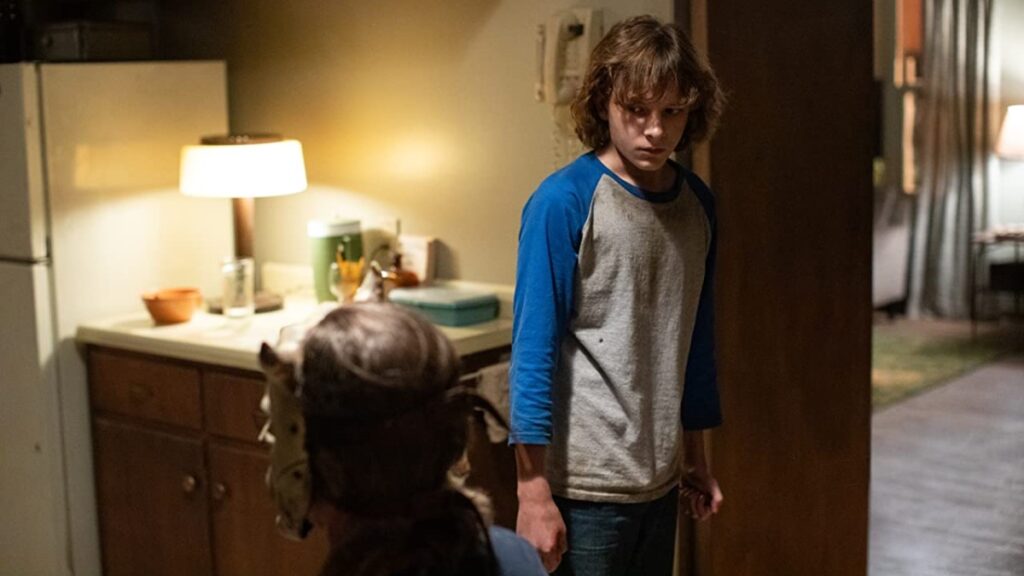
Too weak/sensitive at the beginning, and he’s not likable enough or believable enough to root for as a character. Too confident/strong at the end of the film, and the story loses believability in the fight versus The Grabber.
The tightrope Finney has to walk while maintaining a stressful performance largely by himself is one fraught with potential failure/inconsistency. Not only does Thames deliver the goods, the push and pull of the tensions adds energy and believability to what could have otherwise been a paint-by-numbers plot for the film.
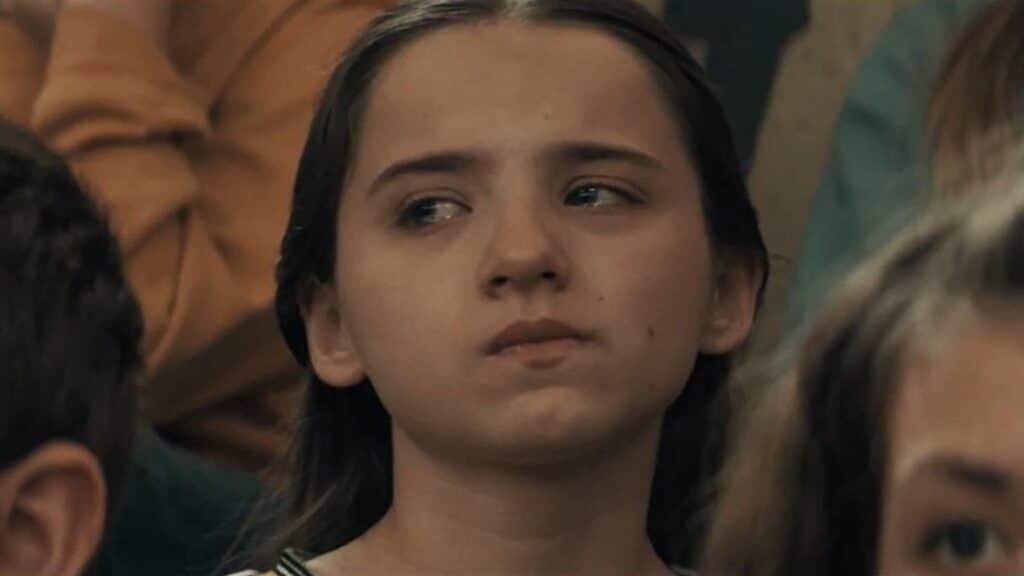
Madeleine McGraw
In some ways, Madeleine McGraw’s role as Gwen is even harder to pull off. Gwen’s nightmares/visions drive much of the momentum of the plot.
Roughly 13 at the time of shooting the film, McGraw must portray Gwen’s experiences remembering and experiencing nightmares/visions. She must also seamlessly go between a normal, meek teen; and a mature-beyond-her-years teen holding her own in scenes with full grown adults playing Police detectives.
On top of all of this, Gwen gets physically, mentally, and emotionally abused in some very hard to watch scenes. These scenes don’t short shrift the extreme nature of the situation.
The fact that an actress as young as McGraw acts out these scenes gives added weight to the drama. The fact that an actress as talented as McGraw acts out these scenes, gives the film a dramatic honesty and believability.
The film’s whole premise rests on Gwen’s inner strength and perseverance that should be hard to believe in a character played by an actress so young. If we had not seen Gwen survive such traumatic scenes early in the film, it would be hard to believe her character would be capable of doing the things she does by the end.
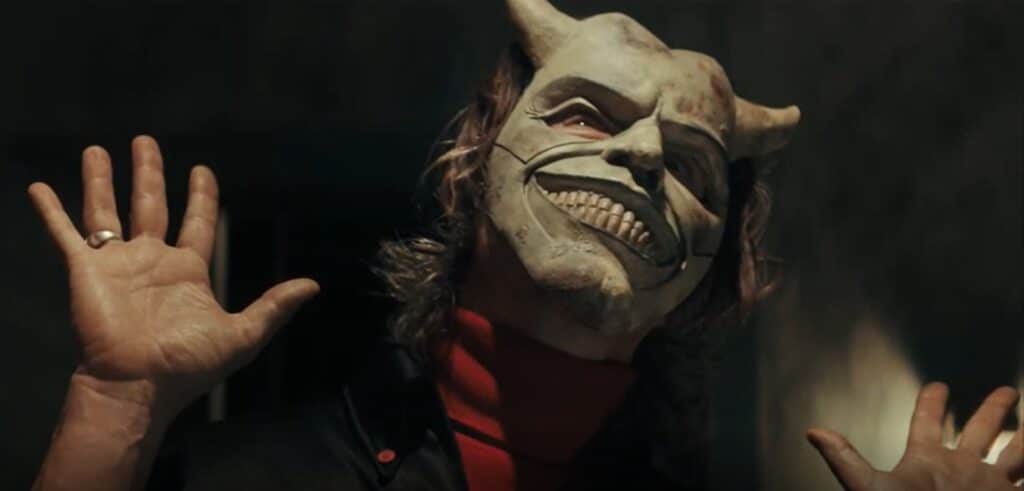
The Bad – The Black Phone
The Predictability
The Black Phone is predictable.
Everything about this film’s premise, story, and execution feels like you’ve seen this movie many times before. This film should not work, given the ripped-from-the-history-books nature of the subject matter, and the blatant similarities to Stephen King’s ‘It’.
However, Director Scott Derrickson turns a weakness into a strength. Instead of trying to use the eye-roll inducing ‘subverting expectations’ ploy, Derrickson does exactly what you think he’s going to do. Every story beat, every jump scare should be seen from a mile away.
But, by casting our two lead characters so well, and perfecting monitoring the tension levels throughout the film, he makes new what once felt old. This should not have worked, but it does.
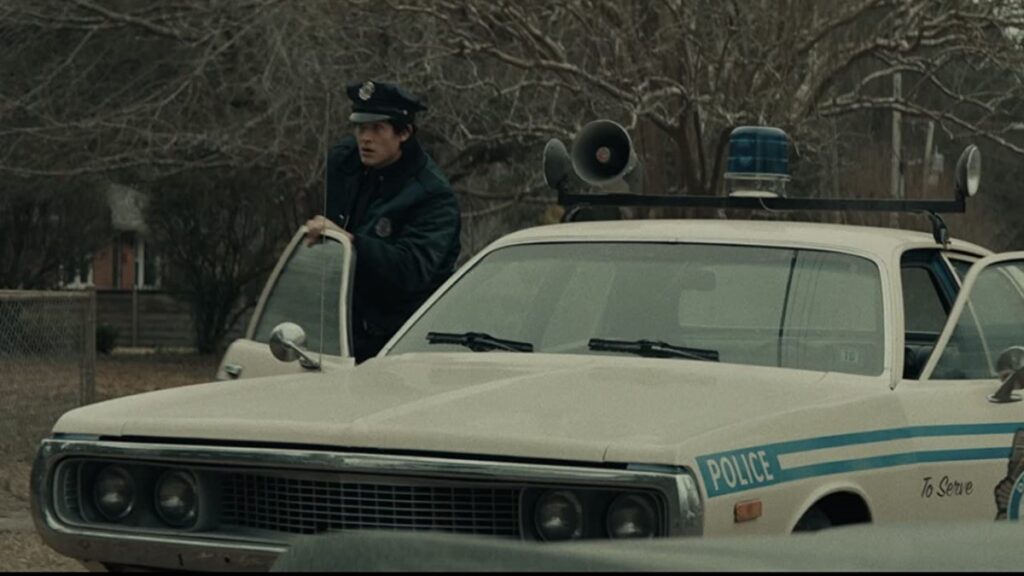
The Leap(s) Of Faith
There’s an old axiom in filmmaking that says, whatever the reality you establish in a movie, you’re only allowed ONE Leap Of Faith that contradicts that reality BEFORE you lose the audience. I.E. Establish the rules and break the rules once: you’re OK. Break the rules a second time: you lose the audience.
The sense of disbelief only goes so far. If you establish a certain reality for a film’s audience, they will go with you into that reality. But, if that audience feels misled or they feel like you’re changing the rules on them halfway through, you lose them.
The Black Phone establishes a fairly grounded reality early in the film. There’s no Freddy Kruger or Pinhead pulling strings as a supernatural villain. ‘The Grabber’ is pure evil, but he’s human.
However, there are still TWO Leaps Of Faith in The Black Phone, not just one. You can make an argument that they are related leaps, but I would still argue that they are two distinctly different.
The first Leap Of Faith, the titular Black Phone itself, has a connection to an afterlife/spiritual plane that dead people’s spirits can communicate with the living through. We see this clearly in the trailer as The Grabber’s previous victims call Finney through the phone to try to help him.
The second Leap Of Faith, Gwen’s dreams being clairvoyant, let her see actual knowledge and events that could not possibly know. Even if we open our minds to the idea of a sibling connection explaining her visions of Finney, this still doesn’t explain her visions of the other victims.
The Black Phone works in spite of these Leaps Of Faith, not because of them. The Black Phone’s strong acting outweighs the existence of TWO leaps, but barely.
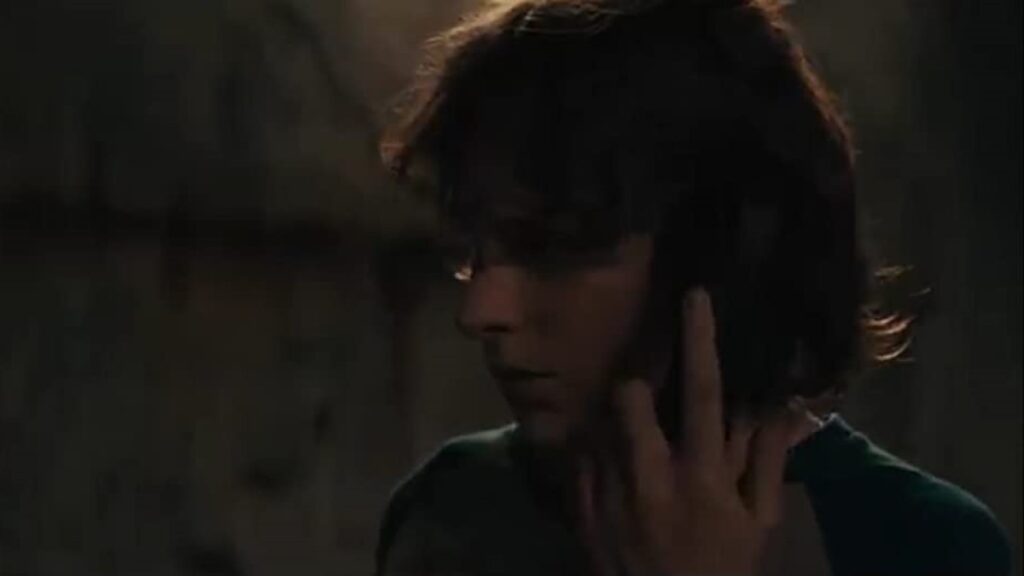
The Review – The Black Phone
Strong Performances Make The Black Phone
Strong casting and acting performances by The Black Phone’s two lead child actors drive this movie.
While Ethan Hawke‘s name and reputation will bring you in the door, his presence in the film is limited to mysterious villain/evil threat. Very little of The Black Phone is seen through him, and more in response to him.
Mason Thames’ and Madeleine McGraw’s performances and their sibling connection is what truly drives this phone. Despite being apart for most of the film, we still feel Finney and Gwen’s sibling connection because of the performances by Thames and McGraw.
While based on the Joe Hill 2004 short story ‘The Black Phone’, you can feel the influence of Stephen King’s ‘It’, and of the real life serial killer John Wayne Gacy.
The 70’s, suburban, middle America setting is designed to make you feel safe and familiar, and it works perfectly. The everyday settings of a little league baseball game and Middle School classes, lull you into a sense of complacency despite having seen the film’s trailer.
The film’s setting, plot, and story beats are nothing special, even for a Thriller/Suspense film. The outstanding performances by our young lead actors standing against the familiar setting create the three dimensional surrealness of the story stand out and be believable.
Suspense/Thriller/Horror films are not the kind of film that I am naturally drawn to, or generally recommend. But, the outstanding performances by Mason Thames and Madeleine McGraw make The Black Phone worth watching.
If you like films of this genre, The Black Phone is absolutely worth watching, and watching in a darkened theater with the energy of an audience adding to the experience.
The Black Phone IMDb Page
The Black Phone Wikipedia Page
Dragon Movie Guy YouTube Channel
Dragon Movie Guy Review Nation Author Page
Dragon Movie Guy Instagram Page
Dragon Movie Guy Twitter Page
Score
Score
Review Nation Score
Director Scott Derrickson returns to the horror genre with strong performances from teen actors Mason Thames and Madeleine McGraw in 'The Black Phone.'
